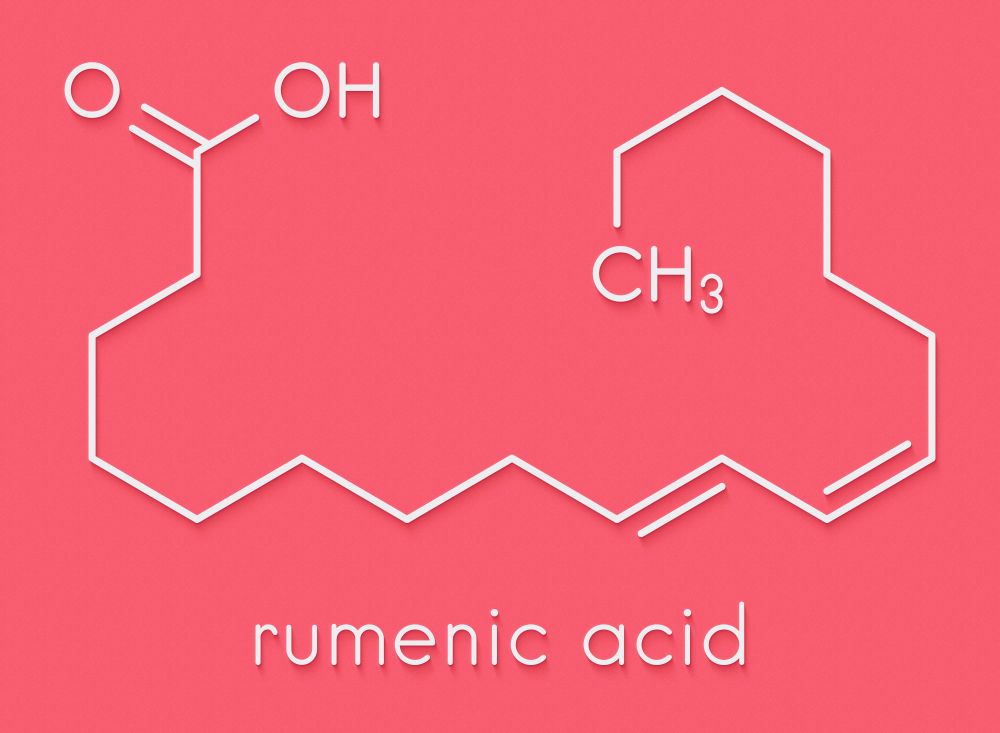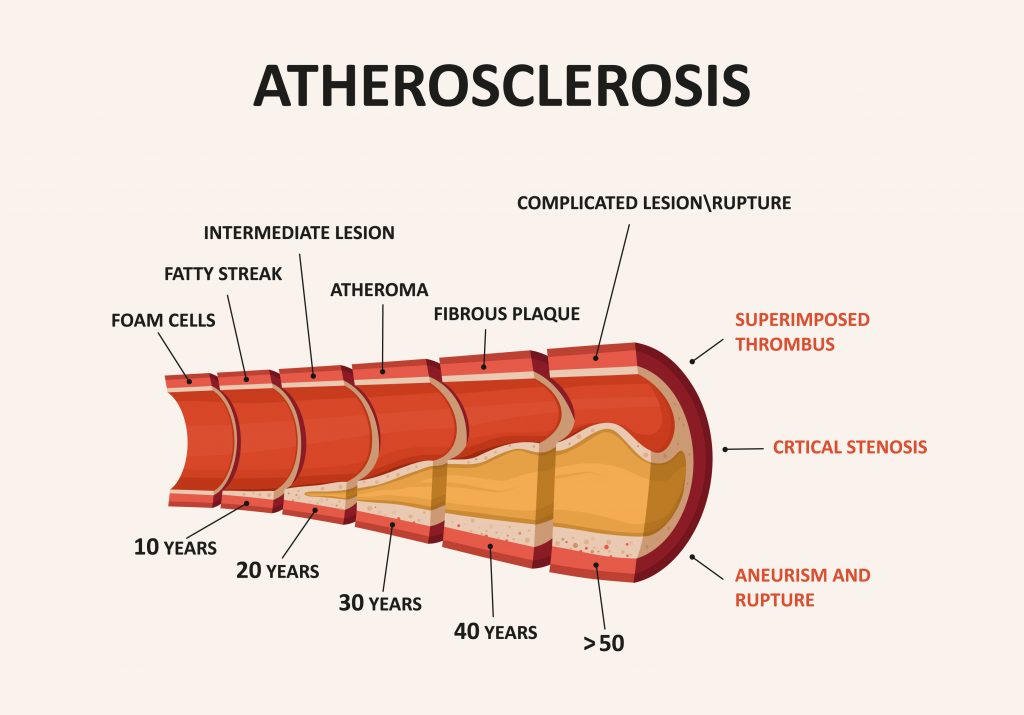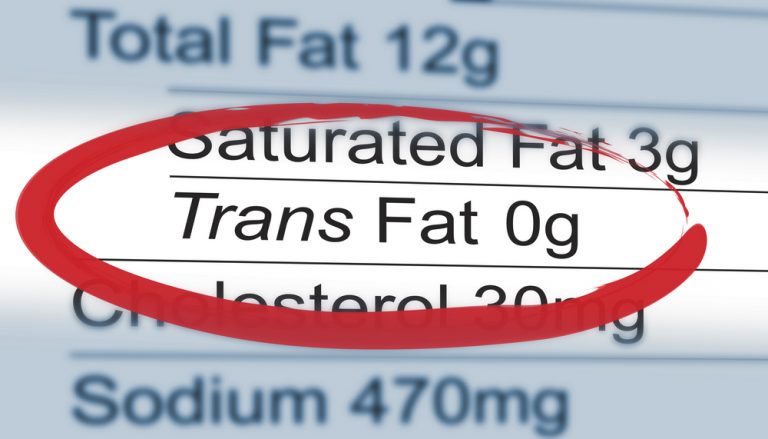Trans fats, or hardened vegetable oils, are considered the most harmful type of fatty acid. Their high consumption promotes the development of, among others type 2 diabetes and atherosclerosis. In addition, trans fats reduce fertility and can be harmful to pregnant women and the growing baby. Where do trans fats occur? Which products are better to eliminate from the menu yo avoid them?
What are Trans fats?
Trans fats, and more specifically trans unsaturated fatty acids, are isomers formed as a result of hydrogenation (hardening) of vegetable oils. Vegetable oils themselves are healthy, but the hardening process causes their properties to change.
Then they can be more dangerous to health than excessive saturated fatty acids consumption. Researchers at Harvard University estimate that about 30,000 premature deaths each year are caused by eating too many products containing hardened vegetable oils.
Trans fats – in what food we can find them?
Trans fats can be naturally found in milk (and dairy products – for example, butter) and meat of ruminant animals. Their content depends on the type of meat - they are the least in pork and chicken, and most in beef and mutton.
As American scientists suggest depending on research published in Advances in Nutrition, naturally occurring trans fats are not harmful to health because they have a different fatty acid profile than industrial trans fats.
On the contrary, they have health-promoting properties. For example, butter contains natural trans isomers such as vaccenic acid and CLA conjugated linoleic acid with very high antioxidant activity.

Unhealthy are trans fats, which are formed as a result of industrial hydrogenation (hardening) of vegetable oils. During this process, the vegetable oil is getting additional hydrogen molecules attached to its unsaturated bod and is subjected to very high temperatures.
Heated vegetable oil molecules bind to hydrogen molecules, resulting in a new compound - hydrogenated (hardened) fatty acid. This process is carried out to change the consistency of vegetable oils from liquid to solid one. In addition, hydrogenation increases the durability of vegetable oils, which are very sensitive to light and temperature. Therefore, manufacturers add them to products that have a long shelf life.
Trans fats can also be formed by heating or frying oils at high temperatures. Therefore, they are found in stale fats used commonly in many gastronomic establishments.
Trans fats increase the risk of infertility, heart disease, depression and cancer
Industrial trans fats are the most harmful type of fatty acids responsible for increasing the risk of cardiovascular disease. According to research from specialists from the European Food Safety Authority (EFSA), trans fats, like saturated fatty acids, increase bad cholesterol (LDL). Its excess accumulates in the arterial walls and causes atherosclerosis, which is associated with a heart attack and stroke. However, unlike saturated fatty acids, trans fats further reduce the level of good cholesterol (HDL), which further increases the risk of developing, for example, coronary heart disease.
What’s more, eating trans fats increases triglyceride levels in the blood, which is another factor that increases the risk of this condition. The results of many studies suggest that consumption of trans unsaturated fatty acids significantly increases the risk of sudden cardiac death and death due to coronary heart disease.

Trans fat and obesity
Trans-fatty acids may promote weight gain and developing excessive adipose tissue, especially visceral (intra-abdominal) one. Trans fats affect fat metabolism and may reduce tissue sensitivity to insulin.
Studies show that small amounts of TFA are not associated with an increased risk of type 2 diabetes.
However, large amounts of trans-fatty acids in the diet can lead to an increase in insulin resistance, especially among people prone to developing diabetes - with abdominal obesity or in people with less physical activity.
Trans fats can be dangerous for pregnant women and children
The unequivocal effect of trans fats on pregnant and fetal health has not yet been proven, but it is thought that pregnant women who consume large amounts of these fats may be at risk of developing pregnancy-induced hypertension, pre-eclampsia and increased insulin resistance.
Hardened vegetable fats can also be dangerous for a developing child because they pass through the placenta. It is believed that they can affect the weight of a newborn, as well as decide on the length of pregnancy and the development of the child’s nervous system.
These bad fats also get into breast milk, which can also have dangerous consequences for the baby. In addition, hardened vegetable fats have been shown to reduce male fertility. Trans isomers of fatty acids also negatively affect male and female fertility. Replacement of 2 per cent energy from monounsaturated fatty acids to energy from trans isomers was associated with more than twice the risk of infertility due to ovulation disorders.
It was also observed that women from the highest quintile intake of trans isomers had a 48 per cent higher risk of endometriosis. compared to women from the lowest quintile. In turn, men found an inverse relationship between TFA levels in sperm and sperm concentration in them.
Trans fats and cancer
In addition, hardened oils have been shown to increase the risk of developing cancer. Researchers at the University of North Carolina-Chapel Hill have determined that people whose diets were high in trans fatty acids almost twice as often have bowel cancer. They can cause muscle catabolism.
In addition, some scientists argue that the increased supply of trans fat in the diet increases the risk of developing prostate and breast cancer, but there is insufficient and consistent evidence linking the consumption of trans isomers with the development of these three cancers.
Trans fats and depression
It also seems that high trans fat intake may be associated with an increased risk of depression.
Are all trans fats bad?
There is not sufficient scientific basis to state unequivocally that trans fatty acids naturally present in butter, dairy products and meat of ruminants are less harmful than trans fatty acids resulting from the partial hydrogenation of vegetable oils, as confirmed by the European Food Safety Authority ( EFSA). According to AOCS - American Oil Chemist Society, in many European countries the consumption of trans fatty acids from ruminant products is currently higher than the consumption of trans fatty acids of plant origin. That is why it is so important to take care of the right proportions in the daily diet of eating animal and vegetable products.






